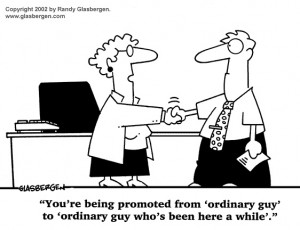You applied for a job, landed an interview and got invited back for a final interview. At every step, you felt great about the job, company and people. The interviewers were extremely complimentary of you throughout the process. Everything looked great. Then, you get the call that the company selected another candidate. The only feedback they provide is that the other candidate is “a better fit.”
You applied for a job, landed an interview and got invited back for a final interview. At every step, you felt great about the job, company and people. The interviewers were extremely complimentary of you throughout the process. Everything looked great.
Then, you get the call that the company selected another candidate. The only feedback they provide is that the other candidate is “a better fit.”
I’ve been a recruiter a long time and have watched this happen more times than I can count. It is extremely frustrating for the candidate. Without any specific feedback, the candidate doesn’t know why they weren’t hired.
There are a few reasons why a candidate might not get hired. Understanding how hiring managers make a decision can help you maximize your chances. No matter what you do, you will not get an offer every time. At the end of the hiring process, it is likely there will be two or three candidates being considered. This means half to two thirds of the candidates that complete a final interview will be turned down.
The candidate that gets hired will have several attributes. They will have experience and skills that will allow them to either do the job or learn the job quickly. They will have an attitude and work ethic that meets the hiring manager’s expectations. They will be able to communicate their skills, abilities and background in a positive way.
Of these attributes, you can improve all of them. Your skills and experience take time to improve, but over your career, you should continue to develop. Your attitude and work ethic are determined by your choices. If you continually choose to do more and maintain a positive attitude, these will become habits. You can also influence your communications skills and your interview skills in particular (check out our interview prep book).
You’ve done everything you can to improve your marketability and still get turned down for the job you want. Why does this happen?
When a hiring manager decides to fill a position, they will develop criteria for selecting the candidate. Some of the criteria will be objective but most will be subjective. There are few objective measures for most skills. How do you quantify a person’s leadership skills or their multi-tasking ability? You can’t.
Hiring managers will often use a successful employee as a model for the person they want to hire. For example, many manufacturing and distribution firms like to hire former military officers for supervisory positions. A military background teaches great leadership skills. It doesn’t guarantee a person is a great leader, but it does show a common set of training and experiences.
Using a common set of experiences to assess candidates is used frequently. If you don’t have the common background, it will not eliminate you from the process. It can be the cause of a rejection at the end of the process. Picture two candidates – we’ll use the supervisor position in a manufacturing plant. One candidate is a former military officer and has four years of experience in supervisory positions in manufacturing. The other candidate started out as an engineer in manufacturing and has four years of supervisory experience.
Both candidates have the same experience in the role – four years supervising manufacturing teams. In this case, both candidates have similar educational backgrounds and present a good track record of accomplishment. There is little to differentiate them except for the experience prior to their supervisory experience.
One hiring manager may favor the technical skills brought gained from an engineering background, while another may favor the leadership background of a former military officer. Both candidates could be successful in the role. Rejecting an unqualified candidate is easy. Rejecting a qualified candidate is more difficult. This is the source of the feedback “the other candidate was a better fit” comes in.
What do you do? If you’re up against a candidate that has the preferred background, you can still give yourself a chance.
- Prepare for your interviews thoroughly by developing good examples of your accomplishments, and how they benefited your employers.
- Ask questions to learn as much as you can about the goals of the hiring manager.
- Show specific situations from your background where you met similar goals to the goals of the hiring manager.
The key is showing your ability to succeed. You need to demonstrate clearly how you will perform better than your competition. It isn’t enough to show you can succeed. Your competition can succeed too. If you’re competing against someone with a background exactly matching the profile the hiring manager wants, you have to show how you are better. The way you do this is by showing what you have done. If you do not do this, then you leave the question of who has the strongest potential up to the hiring manager.





